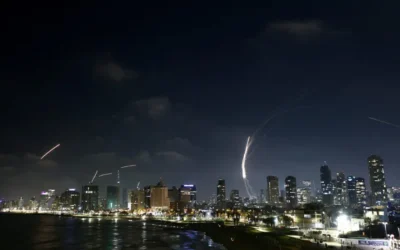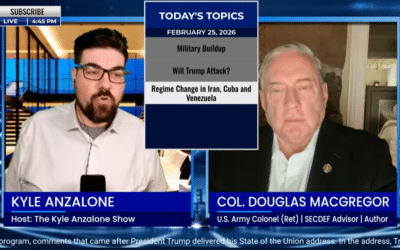This article was originally published at Anti-Media.
Beijing — As Anti-Media has covered in recent days, controversial Philippine President Rodrigo Duterte, along with hundreds of Filipino business leaders, is visiting China this week in a move aimed at strengthening regional ties between the two countries.
On Tuesday, we reported that, for all intents and purposes, the United States had lost the Philippines to China as an ally, with President Duterte saying during his visit that “It’s only China that can help us” and “I just want to talk with China” on the issue of the South China Sea.
Now, Reuters is reporting that Duterte announced his official separation from the U.S while speaking in Beijing at a forum in the Great Hall of the People.
“In this venue, your honors, in this venue, I announce my separation from the United States,” Duterte said on Thursday, to wild applause from both Chinese and Filipino business people. Chinese Vice Premier Zhang Gaoli, incidentally, was also in attendance.
Duterte went further than this, however, stating “America has lost” both militarily and economically in its pursuit of imperialistic hegemony. Interestingly, his comments come a day after Filipino police drove a van into a crowd of demonstrators protesting against U.S. imperialism in the region.
Equally interesting is the status Duterte instantly granted the Philippines by shifting his allegiance to China. Duterte, it seems, believes his country has now elevated to the rank of global superpower.
“I’ve realigned myself in your ideological flow,” he said of China, “and maybe I will also go to Russia to talk to (President Vladimir) Putin and tell him that there are three of us against the world — China, Philippines and Russia. It’s the only way.”
While such grand talk from the Philippine president is hardly surprising — indeed, it’s nearly expected at this point — and is undoubtedly wishful thinking on his part, it nonetheless demonstrates that Duterte sees the writing on the wall.
Two forces are taking shape in the buildup to what could very well be World War III — those nations aligned with the United States and the West, and those supporting the steadily growing Eurasian bloc, led by Russia and China.
President Duterte, very clearly, has put his money on the Russian-Chinese superstate.
China, for its part, has been relatively quiet in recent weeks, seemingly content to firm up deals with regional partners such as the Philippines.
Russia, however, is another story. As the time of this article’s publication, a Russian naval fleet — the largest since the Cold War and consisting of an aircraft carrier and anti-warship submarines — is sailing toward Syria, where diplomatic efforts between Washington and the Kremlin have cratered and the violence in Aleppo has reached month-long highs.
The seriousness of the situation has been acknowledged at all levels, with President Obama himself admitting the lethality of the Russian military.
“We think that Russia is a large, important country with a military that is second only to ours and has to be a part of the solution on the world stage rather than part of the problem,” he said at a news conference on Tuesday. “But their behavior has undermined international norms and international rules in ways we have to call them out on,” he said.
The U.S. will no doubt continue to “call them out,” even as Russian war machines push toward the Mediterranean Sea and — if nothing changes in the interim — inevitable, all-out warfare with the United States in Syria. As such, watch for other countries to start following the Philippines’ play in the coming days and pick a side while they still have the option to do so.






























![The Kyle Anzalone Show [GUEST] Dave DeCamp: BREAKING: Tucker Carlson detained in ISRAEL! – Trump’s Iran Strategy Exposed!](https://offload-wp-files.sfo3.digitaloceanspaces.com/2026/02/Screenshot-2026-02-27-115531-400x250.png)
